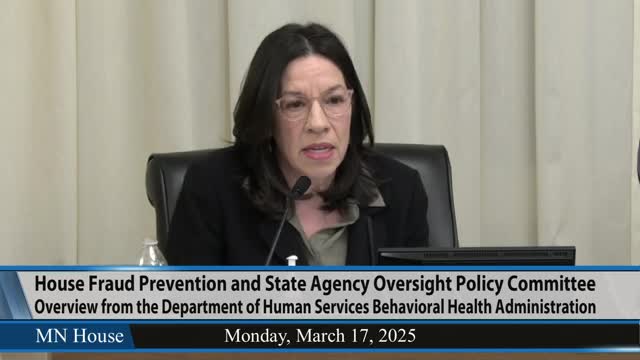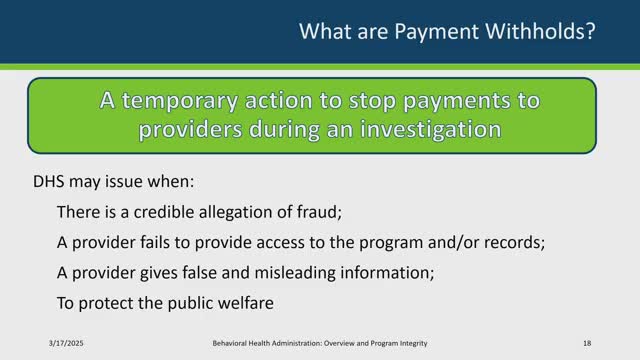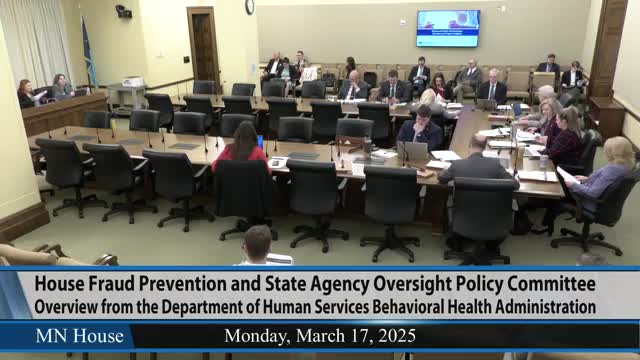Article not found
This article is no longer available. But don't worry—we've gathered other articles that discuss the same topic.

BCA merges fraud units, coordinates with DHS; autism provider audits and Feeding Our Future ties under review

DHS urges stronger payment-withhold authority, anti-kickback law as part of governor’s anti-fraud package

